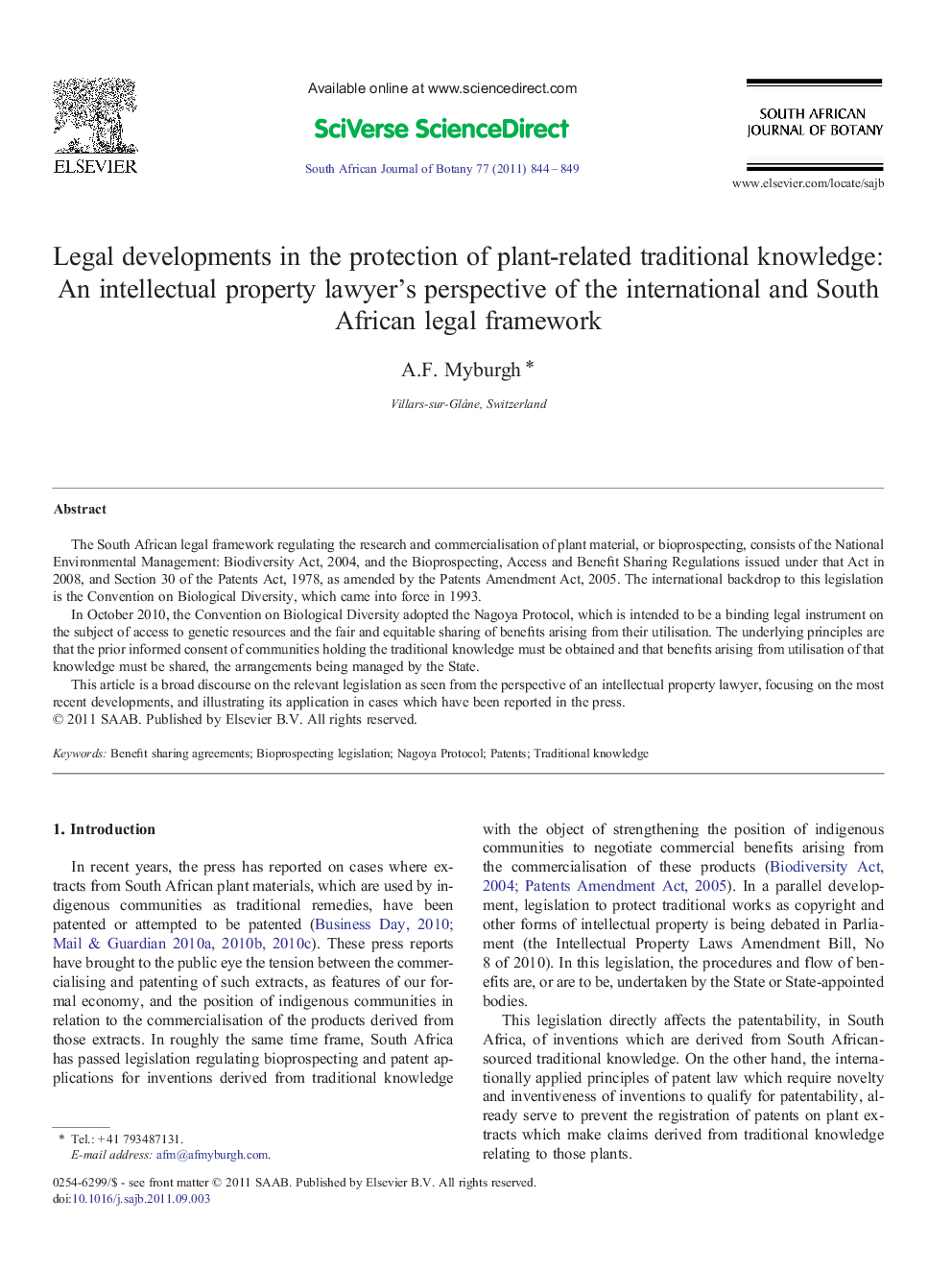| Article ID | Journal | Published Year | Pages | File Type |
|---|---|---|---|---|
| 4521117 | South African Journal of Botany | 2011 | 6 Pages |
The South African legal framework regulating the research and commercialisation of plant material, or bioprospecting, consists of the National Environmental Management: Biodiversity Act, 2004, and the Bioprospecting, Access and Benefit Sharing Regulations issued under that Act in 2008, and Section 30 of the Patents Act, 1978, as amended by the Patents Amendment Act, 2005. The international backdrop to this legislation is the Convention on Biological Diversity, which came into force in 1993.In October 2010, the Convention on Biological Diversity adopted the Nagoya Protocol, which is intended to be a binding legal instrument on the subject of access to genetic resources and the fair and equitable sharing of benefits arising from their utilisation. The underlying principles are that the prior informed consent of communities holding the traditional knowledge must be obtained and that benefits arising from utilisation of that knowledge must be shared, the arrangements being managed by the State.This article is a broad discourse on the relevant legislation as seen from the perspective of an intellectual property lawyer, focusing on the most recent developments, and illustrating its application in cases which have been reported in the press.
► Developments in bioprospecting legislation in 2010 and 2011. ► Bioprospecting legislation stifles innovation and commercialisation. ► Outcome of patent cases involving plant-related traditional knowledge.
